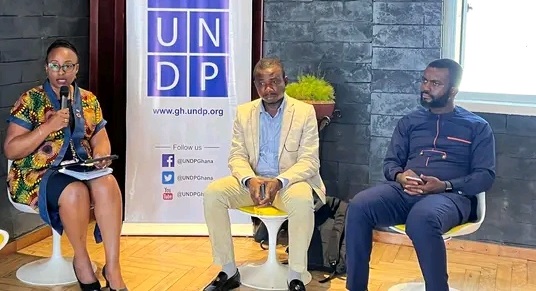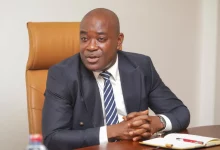
Ghana ranks 133 out of 191 countries in the Human Development Index (HDI) report for last year.
The country maintained the same HDI value for 2020 and 2021 with a significant increase from 0.460 to 0.632 between 1990 and 2021 representing 37.4 per cent.
According to the report, the current HDI puts the country in the medium human development category.
It said though, Ghana fell in the medium human development category, when considered for unequal distribution of human development, the country recorded a loss of 27.5 per cent in its HDI.
This is according to a report released by United Nations Development Programme (UNDP), on its latest HDI report dubbed, “Uncertain Times, Unsettled Lives: Shaping our Future in a Transforming World,” which was launched in Accra on Friday.
The report sought to focus on the ways in which new layers of uncertainties were interacting to exacerbate existing crises.
“For instance, Ghana’s level of gender inequality remains high over the years and ranked 130 out of 170 countries in 2021 in terms of gender inequality between female and male achievements,” it said.
To chart a new course, the report recommended implementing policies that focused on investment from renewable energy to preparedness for pandemics, and insurance including social protection to prepare societies for the ups and downs of an uncertain world.
It also recommended innovation such as technological, economic and cultural which could build capacities to respond to challenges that may prevail.
The UNDP Resident Representative to Ghana, Mrs Angela Lusigi said Ghana cannot achieve development without addressing unequal human progress that left many behind.
She called for collaborative effort to remove existing structural, cultural and socio-economic barriers that block progress for young people, women, people living with disabilities among others.
“Let us work together to unlock the potential of every Ghanaian to create a sustainable future in the face of uncertainty,” Mrs Lusigi added.
A Senior Statistician at Ghana Statistical Service (GSS), Mr Patrick Adzovor said GSS multi-dimensional poverty report revealed that about 47.1 per cent of the population did not have active insurance cover saying that was the driver of the poverty among the population.
He called on government to invest more on insurance to improve the lives of the individual Ghanaian and also in the midst of climate change, it could curtail some of the unforeseen circumstances that may come on the way.
A Research Fellow at the Institute of Statistical, Social and Economic Research (ISSER) of the University of Ghana, Legon, Mr Andrews Agyei-Holmes for his part advocated innovation in the food system to improve food security in the country.
“Consumers should pay attention to cassava which we produce more than we need. Every year one-third of all the cassava produce is left under the ground to get rotten. Can we hold them up and turn them to bread so that our dependence on Balkan areas for wheat can reduce as well as our import bills,” he added.
BY VIVIAN ARTHUR



